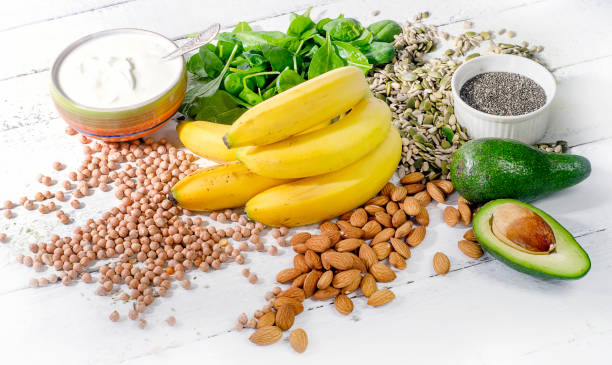Magnesium...... why it's so important for your health.
Nearly two-thirds of the population worldwide eats a diet that is deficient in magnesium and on top of that, New Zealand has low levels of magnesium in the soil. Magnesium is needed for more than 300 biochemical reactions and 600 enzymatic reactions in the body.
Some of magnesium’s functions in the body include;
Maintaining a healthy heart rhythm
Assisting with sleep
Relaxation of blood vessels
Relaxing and activating muscles and nerves
Creation of ATP (adenosine triphosphate), the energy molecules of your body
Proper formation of bones and teeth
Regulation of blood sugar levels
Helping digest proteins, carbohydrates, and fats
Serving as a cofactor for RNA and DNA
Catalyst for neurotransmitters like serotonin
Regulating and supporting hormones
So, as you can see, magnesium is a very important mineral. Good food sources of magnesium include:
Spinach, leafy greens, pumpkin seeds, sunflower seeds, chia seeds, pumpkin, chickpeas, sesame seeds, cashews, legume beans, buckwheat, tempeh, barley, millet, oats, tofu, almonds, peas, broccoli, cabbage, green beans, asparagus, salmon, figs, avocado, bananas, raspberries, peanuts, walnuts, brazil nuts, brown rice, raisins, potatoes, molasses and my favourite, dark chocolate.
Do you think you may be deficient in magnesium? Here are some of the symptoms associated with magnesium deficiency.
Anxiety
Behavioural disorders and mood swings
Diabetes
Fatigue
Hypertension and heart attacks
Insomnia
Irritability
Muscle tremors or twitching
Numbness and tingling
Osteoporosis
PMS symptoms
Poor digestion
Restless leg syndrome
Tight muscles and cramps
Tooth cavities
Should you take a magnesium supplement?
Yes, yes, and yes. This is a no brainer really. Supplementing with the right type of magnesium can do wonders for your health. Magnesium supplements are widely available, just be careful to choose the type of magnesium that will give you the most benefit.
What are the best forms of magnesium?
1. Magnesium Glycinate
Magnesium glycinate (magnesium bound with glycine, an amino acid) is one of the most bioavailable forms of magnesium, and also the least likely to induce diarrhea. It is the safest option for correcting a long-term deficiency as it raises red blood cell magnesium. You also get the added benefit of the amino acid glycine, which has been clinically demonstrated to help with sleep issue and reduce fatigue.
2. Magnesium Malate
Magnesium malate is a fantastic choice for people suffering from fatigue, since malic acid is a vital component of enzymes that play a key role in ATP synthesis and energy production. It’s also helpful for detox. Malic acid in this form of magnesium is known to cross the blood-brain barrier and bind to aluminium.
3. Magnesium Threonate
Magnesium threonate is the only form known to readily cross the blood-brain barrier and penetrate the mitochondrial membrane to improve brain function. This form optimizes magnesium levels in the brain, enhancing memory and cognitive function.
4. Magnesium Citrate
Magnesium citrate is a combination of magnesium carbonate and citric acid that is inexpensive and highly absorbable. It is commonly used to induce a bowel movement, and thus is not recommended for those with loose stools.
You can also increase your magnesium levels in the bath!
Magnesium Sulfate, commonly referred to as Epsom Salts, is ideal for raising magnesium levels. The ideal concentration for using Epsom Salt baths to raise magnesium status is approximately 500 grams, or 2 cups, of Epsom Salt dissolved in a standard-sized bathtub. The ideal amount of time spent soaking is 15-20 minutes, two to three times per week.
How much magnesium do you need?
The Recommended Daily Intake (RDI) of magnesium around 400mg. Many people may need more than this amount depending on their stress levels, consumption of processed foods and magnesium depleting medications that they consume.
In my opinion, the simplest thing you can do for your overall health is to start supplementing magnesium! Your health and energy levels will start to improve with the help of this wonderful mineral.
*Please note that magnesium should not be taken by people with renal failure.

